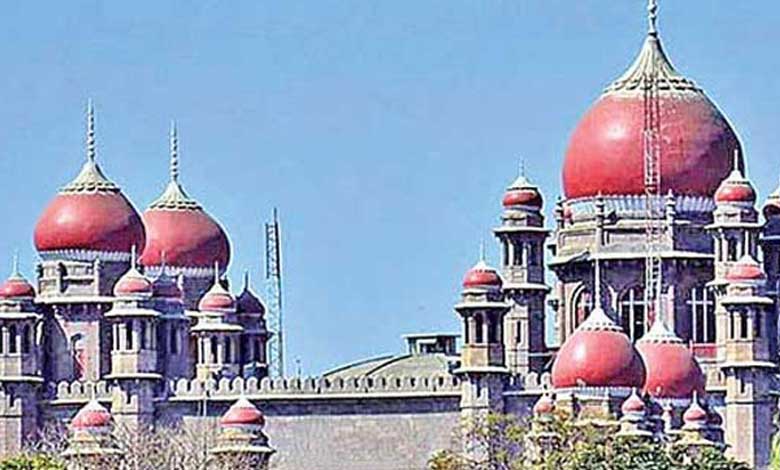Telangana High Court Questions HYDRAA’s Selective Actions on Encroachments
The Telangana High Court, on Tuesday, sharply criticized the Hyderabad Metropolitan Development Authority (HYDRAA) for what it perceived as a selective approach towards encroachment actions. Justice Bollaram Vijaysen Reddy, who presided over the hearing due to Justice K. Lakshman's absence, heard a series of petitions from Kavuri Hills residents challenging the notices issued for encroachment on the Full Tank Level (FTL) limits of Durgam Cheruvu.

Hyderabad: The Telangana High Court, on Tuesday, sharply criticized the Hyderabad Metropolitan Development Authority (HYDRAA) for what it perceived as a selective approach towards encroachment actions. Justice Bollaram Vijaysen Reddy, who presided over the hearing due to Justice K. Lakshman’s absence, heard a series of petitions from Kavuri Hills residents challenging the notices issued for encroachment on the Full Tank Level (FTL) limits of Durgam Cheruvu.
During the proceedings, Justice Vijaysen Reddy raised concerns about why prominent structures like Raheja Towers, also known as Inorbit Mall, which also fall within the FTL limits, were not included in the demolition list. “The encroachment by Raheja Towers comes before Kavuri Hills even starts,” the judge pointed out, questioning the apparent inconsistency in HYDRAA’s actions. He further queried the Special Government Pleader representing HYDRAA on the rationale behind taking action against constructions that have existed for 10-20 years.
“Simply changing governments or strategies doesn’t justify such delayed actions. What was the government doing all these years?” the judge remarked, expressing frustration over the lack of earlier enforcement. He also demanded answers as to why no punitive measures were taken against Greater Hyderabad Municipal Corporation (GHMC) officials who permitted these constructions in the FTL and buffer zones. Justice Reddy suggested initiating proceedings against these officials under the Prevention of Money Laundering Act and filing Anti-Corruption Bureau (ACB) cases, starting from the highest ranks.
Highlighting the widespread issue, the judge noted, “There are reportedly one lakh unauthorized structures in Hyderabad. Why have notices not been issued to all of them? Why are only specific structures being targeted?” The petitioners, who had been served demolition notices by the Deputy Collector on August 3, argued that they have owned the properties for the past 34 years, having followed all legal procedures and obtained necessary permissions from GHMC and HUDA.
In response, Special Government Pleader S. Rahul Reddy mentioned that a Public Interest Litigation (PIL) concerning the preservation of Durgam Cheruvu was pending before a division bench. He cited the court’s instructions to act against encroachments within the FTL limits as the reason for the recent notices. To avoid conflicting orders, the SGP requested that the current batch of cases be heard alongside the PIL. Consequently, Justice Reddy directed that the petitions be listed before the division bench handling the PIL.
*High Court Hears Pleas on Medical Admissions for 2024-25*
In another matter, a two-judge bench of the Telangana High Court, comprising Chief Justice Alok Aradhe and Justice J. Sreenivas Rao, conducted an inconclusive hearing on approximately 30 writ petitions related to medical admissions for the academic year 2024-25. The candidates, who are aspiring for MBBS and BDS admissions across the state, have contested G.O. 33 issued by the state government, which amended the ‘local candidate’ classification under the Telangana Medical & Dental Colleges Admission Rules, 2017.
According to the revised classification, candidates who have studied in Telangana for at least four consecutive years or have resided in the state for at least four years before appearing for the intermediate qualifying exam are considered local candidates. However, the petitioners argued that this amendment unjustly disqualified those who had pursued their intermediate education or lived outside the state for legitimate reasons, such as parental employment, despite being long-term residents and having completed most of their education in Telangana institutions.
The petitioners highlighted that a similar rule had previously been nullified by the court, which had then instructed that all candidates with a permanent resident certificate be treated as locals. Thus, they asserted that the new G.O. is illegal and unconstitutional. After hearing the extensive arguments from the petitioners, the court adjourned the hearing to Wednesday, allowing the state and Kaloji Narayan Rao University of Health Sciences to present their arguments.
Both cases underscore ongoing legal scrutiny into administrative actions and regulations affecting Telangana’s citizens and institutions.
